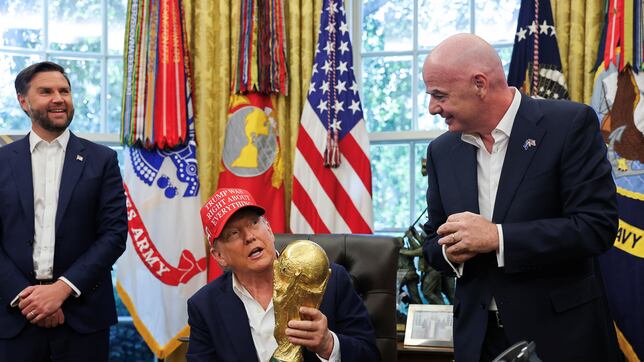Acknowledging U.S. President Donald Trump’s assertion that he might move World Cup games from one American city to another, FIFA has moderated its position that governments’ decisions on safety and security could actually affect venue changes.
This represents a change from FIFA’s previous position, in which the worldwide football body had declared Trump had no authority to change World Cup game venues.
Following Trump’s fresh comments threatening to remove matches from Boston over safety concerns, FIFA seemed to match more closely with the White House.
FIFA stated in a statement issued just after Trump’s words that safety and security remain its main priorities for every world event and added that ultimately, controlling public safety policies is the government’s responsibility.
Obviously, the responsibility of governments is safety and security, and they determine what would serve the greatest benefit. “For public safety,” the remark said.
Especially leading up to the 2026 World Cup, Chronicle knows this growth mirrors an increasing cooperation between FIFA and the U.S. government.
Hosted jointly by the United States, Mexico, and Canada. New York, Miami, Dallas, Atlanta, Los Angeles, and Boston, among 11 other cities, will host the majority of the games. Insider sources report that ongoing issues between FIFA and municipal officials are security funding and city readiness.
On several occasions, Trump has implied that he might remove matches from cities he deems dangerous or badly run. Previously, he mentioned Boston, Seattle, and San Francisco—cities under Democratic leadership—as possible hazards, suggesting FIFA would obey if he demanded relocation.
Originally, FIFA Vice President Victor Montagliani dismissed the concept, claiming football’s worldwide governance was free from political influence and “bigger than any government.”
Recent events seem to indicate otherwise, though. In recent months, FIFA has tightened its links with the Trump administration.
The organization has often interacted with the president at public events and established an office in Trump Tower. Invited to join debates about Gaza peace initiatives, FIFA’s president Infantino promised to back regional sports development.
Behind the scenes, FIFA’s contracts with U.S. host cities include provisions enabling the organization to withdraw hosting rights if cities do not fulfill security and logistical responsibilities. Already confirmed by Seattle’s public agreement, similar clauses probably abound in other locales.
With global attention on the upcoming tournament, FIFA’s latest stance underscores how political influence and public safety concerns are increasingly shaping preparations for the most anticipated World Cup in North American history.



